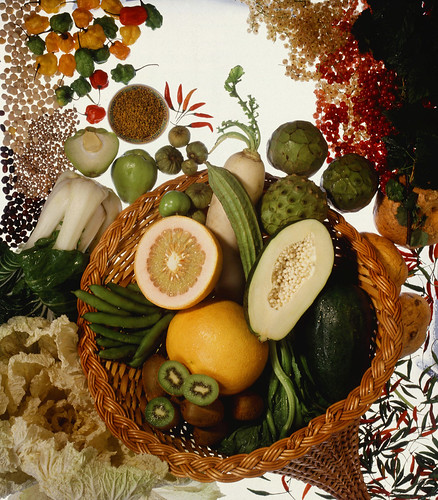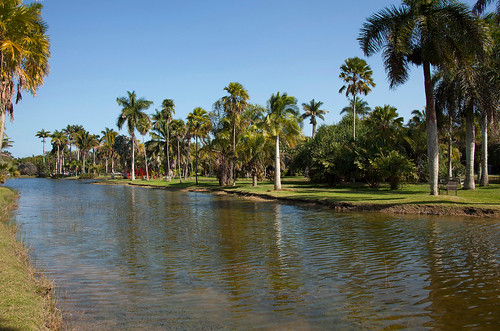
David Fairchild was instrumental in establishing gardens nationwide to screen plants from overseas with potential for improving U.S. diets, gardens, and landscapes. ARS photo by Keith Weller.
This post is part of the Science Tuesday feature series on the USDA blog. Check back each week as we showcase stories and news from USDA’s rich science and research portfolio.
Bountiful harvests don’t magically appear on store shelves and supermarkets. USDA scientists strive to make sure that the variety of meats, fruits, vegetables and grains we enjoy are hardy enough to withstand insects, diseases, droughts and other natural threats familiar to anyone with a garden or farm.
David Fairchild, a USDA scientist, was a key part of that effort. Fairchild collected plants from all over the world so they could be studied and bred. He organized the USDA’s Office of Foreign Seed and Plant Introduction and served as its chairman for more than 20 years. He is credited with introducing about 30,000 plant species and variations into the United States, and he was instrumental in establishing gardens throughout the United States to screen plants with potential for improving our diets, gardens and landscapes.
Fairchild, who was based in Florida, wrote four books, and one of them, The World Was My Garden: Travels of a Plant Explorer, won the National Book Award in 1938. He also helped introduce the cherry trees from Japan to Washington’s tidal basin, and his contributions to science earned him the Public Welfare Award from the National Academy of Sciences. (More recent recipients include Bill and Melinda Gates, Carl Sagan and Norman Borlaug.)
Some of Fairchild’s papers were recently uncovered in the archives of the USDA-Agricultural Research Service’s (ARS) Subtropical Horticulture Research Station (SHRS) in Miami, Florida. While reviewing old records as part of a reorganization effort, ARS research technician Mike Winterstein found several boxes belonging to Fairchild, who died in 1954, that documented his expeditions to the Philippines. The discovery may rekindle interest in a man whose name is already part of Miami’s cultural landscape. His 11-acre estate, known as “The Kampong”—named after a similar family compound in Indonesia—is a popular tourist destination and home to some of the mango, avocado and palm trees that he brought back from overseas.
The research station where Fairchild worked was closed in 1923 and replaced by what is now the ARS-SHRS. But the plants he and his colleagues introduced are still helping USDA researchers address challenges facing agriculture today.

The Fairchild Tropical Botanic Garden is a popular Miami attraction, and it is where the bulk of David Fairchild's papers are kept. ARS photo by Peggy Greb.
No comments:
Post a Comment